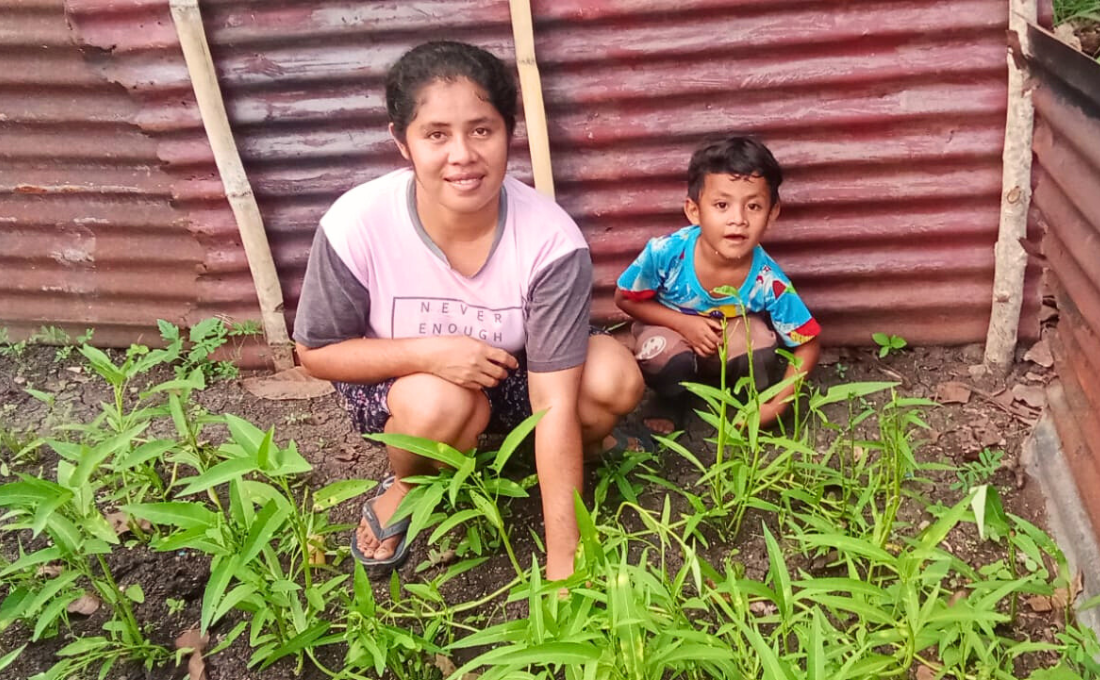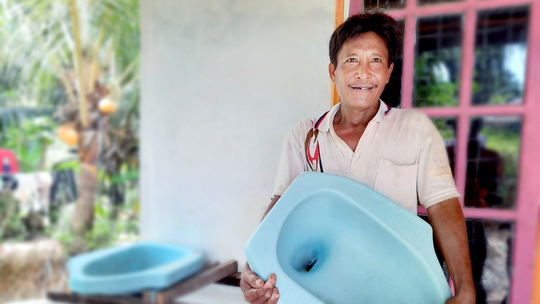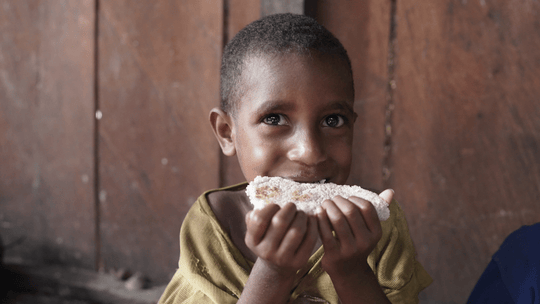A Small Garden, A Big Impact for Families

A house yard isn't just for ornamental plants; it can be the starting point for food security. Even a small yard can be used to grow enough vegetables to feed a family. Using polybags, sacks, or other containers can also be an alternative for growing vegetables at home. A yard that serves to meet a family's nutritional needs can be called a nutritional garden.
For some children and families supported by Wahana Visi Indonesia (WVI), these nutritional gardens have become a solution for meeting their nutritional intake, especially for toddlers. Families can save money on buying vegetables from stalls or vendors, and mothers don't need to travel far to the fields to pick them. A nutritional garden in the yard is closer and more accessible.
Besides the children, the family members who benefit the most from these gardens are the mothers, like Henilia. As a housewife with two children, the nutritional garden has made her life easier. She can also focus on other activities outside the home, such as being an active Posyandu cadre in her village in Ngada Regency, East Nusa Tenggara. "The important thing is that I can ensure both my children, the one in Year 5 and the five-year-old, get enough attention and nutritional intake," she said.
Growing vegetables in the yard isn't a new thing for Henilia. However, she had limited knowledge on how to care for the plants. WVI's assistance helped Henilia realise that she could learn to care for vegetable plants until they produced enough harvest for her family. "My vegetable plants just grew wild. I didn't know how to manage them properly. Last March 2025, the WVI and Yakkestra team held a nutritional garden training in our village. Posyandu cadres, parents of toddlers, and pregnant mothers attended the training," she explained.
During the training, Henilia and the other mothers in her village learned many new things, such as making organic fertiliser, techniques for creating garden beds, and using natural materials from around the house to support plant growth. "We practised directly in the demonstration garden next to the village office. The training was very lively, and the mothers were enthusiastic about every session," she said.
The mothers immediately followed up on the knowledge they gained. The training participants were divided into groups, with Henilia becoming one of the leaders. Each group made a collective commitment to apply what they had learned. "For example, we made organic fertiliser together, then we divided the results equally to be used in the yards of each mother in the group," she said. To support the enthusiasm of the mothers in the village, WVI and their local partner, Yakkestra, provided a variety of vegetable and fruit seeds.
"I was so excited to plant the pak choy, water spinach, tomato, papaya, and long bean seeds. A few weeks later, the plants started to grow lush. It felt incredible to see the results of my own work become a source of nutrition for my family. We've even harvested vegetables from our small garden several times for our daily meals," said the 33-year-old woman.
The training didn't stop there. In June 2025, WVI and Yakkestra held a follow-up training on processing food from the nutritional gardens. Henilia and the mothers in her village voluntarily brought cooking equipment from home, such as stoves, pots, and pans, and, of course, the vegetables they had harvested from their respective gardens.
"Before we started cooking, we received a session from the local health centre about Infant and Young Child Feeding (IYCF). This included how to process food according to the child's age. After that, we started cooking in our groups. I felt so happy because this training opened my eyes to how to prepare healthy and nutritious food for children," Henilia concluded.
From the planting to the food processing training, Henilia feels more confident as a mother and a cadre. She hopes that activities like these will continue in her village, as this kind of knowledge is vital for supporting the growth and development of children there.
Author: Angelina Uta (Field officer from Yakkestra, WVI’s implementing partner for Ngada operational area)
Editor: Mariana Kurniawati (Communication Executive)



